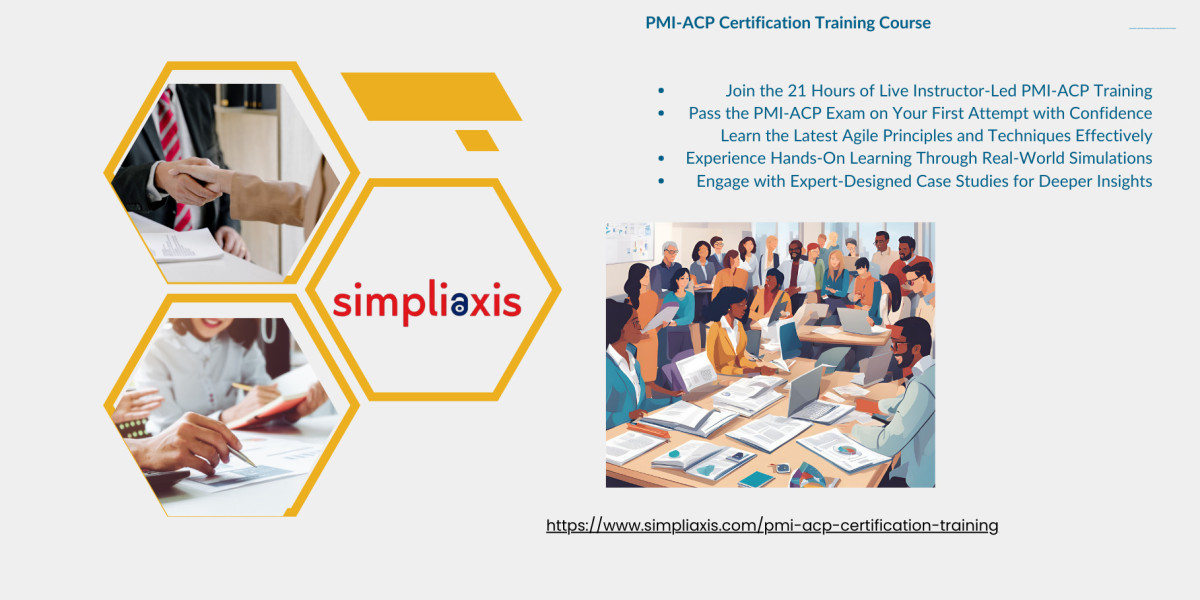The PMI Agile Certified Practitioner (PMI-ACP) is a globally recognized certification that validates your expertise in agile approaches such as Scrum, Kanban, Lean, XP (Extreme Programming), and TDD (Test-Driven Development). Unlike certifications that focus on a single methodology, the PMI-ACP covers a broad spectrum of agile frameworks.
Key Highlights of PMI-ACP:
Covers multiple agile methodologies
Recognized globally by organizations across industries
Demonstrates real-world experience and practical knowledge of agile
Helps professionals advance in agile project roles
PMI-ACP Certification Requirements
To apply for the PMI-ACP certification, candidates must meet the following criteria:
Educational Background: Secondary degree (high school diploma, associate’s degree, or global equivalent)
General Project Experience: 2,000 hours (12 months) of general project experience in the last 5 years (PMP or PgMP holders meet this requirement)
Agile Project Experience: 1,500 hours (8 months) working on agile project teams or with agile methodologies in the last 3 years
Training in Agile Practices: 21 contact hours of training in agile practices
Why Choose PMI-ACP Certification?
Broad Agile Knowledge: Unlike role-specific certifications like CSM (Certified ScrumMaster), PMI-ACP spans a variety of agile practices.
Industry Recognition: PMI certifications are highly respected worldwide.
Career Advancement: PMI-ACP holders often command higher salaries and leadership roles in agile teams.
Agile Expertise Validation: It demonstrates your practical experience and ability to work on agile teams.
Best PMI-ACP Training: What to Look For
Choosing the right PMI-ACP training course is crucial for exam success. Here’s what to consider:
1. PMI-Approved Training Provider
Ensure the course provider is a PMI Authorized Training Partner (ATP). This guarantees quality and alignment with PMI’s exam blueprint.
2. Experienced Agile Trainers
Look for instructors with real-world agile experience and PMI-ACP certification. Trainers with hands-on agile project exposure can provide practical insights.
3. Comprehensive Study Materials
Choose a course that offers:
PMI-ACP exam prep guide
Practice questions and mock tests
Flashcards and case studies
Downloadable resources and templates
4. Flexibility and Accessibility
Online, instructor-led, or hybrid formats—choose one that suits your schedule. Many of the best PMI-ACP training courses are available 100% online.
5. Positive Reviews and Success Rate
Check testimonials and success stories from past students. A high pass rate is a good indicator of course effectiveness.
Top PMI-ACP Training Providers (2025)
Here are some of the most recommended PMI-ACP training platforms:
Simplilearn PMI-ACP Certification Training
PMI-approved
21 contact hours
Multiple practice exams
Access to a community forum
PMTraining PMI-ACP Online Course
Instructor-led classes
Study guides and practice exams
PMI ATP credentials
LinkedIn Learning Agile Project Management Path
Great for beginners and working professionals
Self-paced with bite-sized videos
KnowledgeHut PMI-ACP Prep
Offers blended learning
Real-world scenarios and case studies
100% pass guarantee
PMI-ACP Exam Format
Number of Questions: 120 multiple-choice
Duration: 3 hours
Domains Covered:
Agile Principles and Mindset
Value-Driven Delivery
Stakeholder Engagement
Team Performance
Adaptive Planning
Problem Detection and Resolution
Continuous Improvement
Tips to Prepare for PMI-ACP Certification
Enroll in a reputed PMI-ACP training course to fulfill your 21 contact hour requirement.
Use PMI-ACP exam simulators to familiarize yourself with the question patterns.
Read the Agile Practice Guide by PMI and other recommended books like “PMI-ACP Exam Prep” by Mike Griffiths.
Join online forums and discussion groups to engage with other aspirants.






